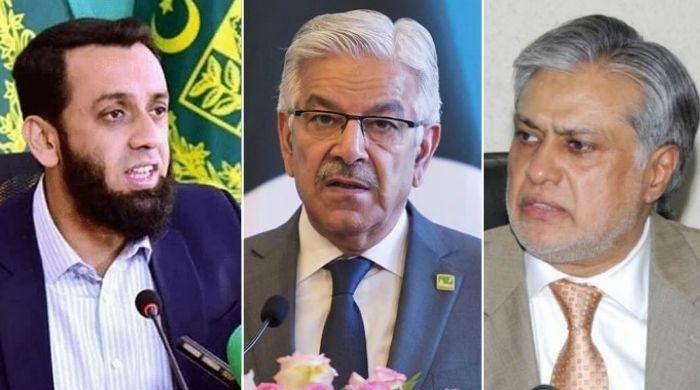Pakistan Accuses India of Exploiting Pahalgam Attack, Threatens Response
Pakistan has strongly criticized India for allegedly leveraging the Pahalgam attack, which resulted in the deaths of 26 tourists, to potentially suspend the Indus Waters Treaty for domestic political benefits. Islamabad asserts that New Delhi is attempting to instigate a “hydro war” without conducting a thorough investigation or providing substantial evidence.
According to Pakistan, India has linked Islamabad to the aforementioned attack without presenting proof, and has initiated several punitive actions aimed at downgrading relations, including the potential suspension of the Indus Waters Treaty, visa revocations for Pakistanis, and the closure of the Wagah-Attari border crossing.
Islamabad has retaliated to India’s measures and has also cautioned about the possible suspension of the Simla Agreement, in addition to a potential closure of its airspace for Indian aircraft. Pakistan has refuted any involvement in the attack and has proposed engaging in a credible and transparent inquiry.
Prime Minister Shehbaz Sharif, while condemning the attack, has offered Pakistan’s cooperation in a neutral, transparent, and credible investigation into the incident.
Defense Minister Khawaja Asif stated that India would not benefit from violating the Indus Waters Treaty, given its international safeguards. He highlighted that the World Bank brokered the Indus Waters Treaty, which both India and Pakistan ratified in 1960. Suspension of the treaty could allow India to restrict water flow into Pakistan, impacting the country’s irrigation and water supply.
Potential Consequences of Treaty Suspension
“Where will India divert the water; it cannot redirect or halt it entirely,” Asif questioned. He also pointed out India’s lack of response to Pakistan’s offer for an international investigation into the Pahalgam incident, emphasizing Pakistan’s readiness to participate in a transparent probe.
He affirmed national unity with the armed forces, pledging a strong response to the Indian government, similar to the response following the Pulwama incident. He cautioned that a conflict between two nuclear powers would endanger regional and global stability.
“However, should circumstances intensify, containment becomes unfeasible,” he warned. “Should Modi opt for escalating tensions, our response will be resolute and comprehensive.”
Asif alleged that the Indian Prime Minister is known for spreading misinformation, reminiscent of tactics used during the Pulwama incident, but emphasized Pakistan’s strength to respond effectively.
Separately, Information Minister Attaullah Tarar briefed foreign journalists on India’s actions, asserting Pakistan’s capability to forcefully respond to any misadventure, drawing from past demonstrations of strength.
“It appears this entire episode is driven by the pursuit of water resources,” he stated, condemning India’s choice to potentially suspend the Indus Waters Treaty unilaterally.
Tarar described the treaty suspension as an “immature and childish” action by India.
He referenced principles of public international law, explaining that treaties require mutual consent for revocation, suspension, or termination.
He warned that targeting Pakistan’s water, crucial for its agricultural sector, would constitute “an act of usurpation, an unfair and unjust measure.”
Tarar reiterated Pakistan’s position, stating, “The Prime Minister and National Security Committee have affirmed that any attempt to divert or halt Pakistan’s water will be met with full force and power.”
The minister cautioned India against interpreting Pakistan’s stance as a sign of weakness.
“Let me reiterate: our statements should not be misconstrued as weakness. Pakistan has consistently defended itself and will continue to do so,” he affirmed, alluding to Pakistan’s response post-Pulwama.
Referring to the Pulwama incident in February 2019, the minister said India has tested “our patience in the past and we passed it with flying colors and India was left to regret.”
Mentioning the attack on Pakistani High Commission in London, Tarar said it is India’s extremist ideology which prompts its people to attack our foreign missions. Tarar said India had pre-conceived notions about the Pahalgam incident, may be the purpose was to pin the blame on Pakistan.
He stated that India’s allegations against Pakistan lack substance, noting the distance of the Pahalgam area from the Line of Control and the absence of corroborating evidence.
Meanwhile, Deputy Prime Minister and Foreign Minister Ishaq Dar engaged with British Foreign Secretary David Lammy and Chinese Foreign Minister Wang Yi to discuss India’s unilateral actions and the regional situation, according to the Foreign Office.
During his discussion with Lammy, Dar emphasized India’s unfounded propaganda, false accusations, and its unlawful decision to suspend the Indus Waters Treaty, which violates international obligations.
He reaffirmed Pakistan’s commitment to safeguarding its national interests while fostering peace and stability. Lammy emphasized the importance of de-escalation through dialogue, while Dar conveyed Pakistan’s readiness for an independent and transparent investigation.
In his call with Wang Yi, Dar conveyed gratitude for China’s ongoing support and rejected India’s unilateral measures and propaganda. Both leaders reaffirmed close coordination and their commitment to upholding regional peace and stability.



Comments (0)
No comments yet. Be the first to comment!
Leave a Comment